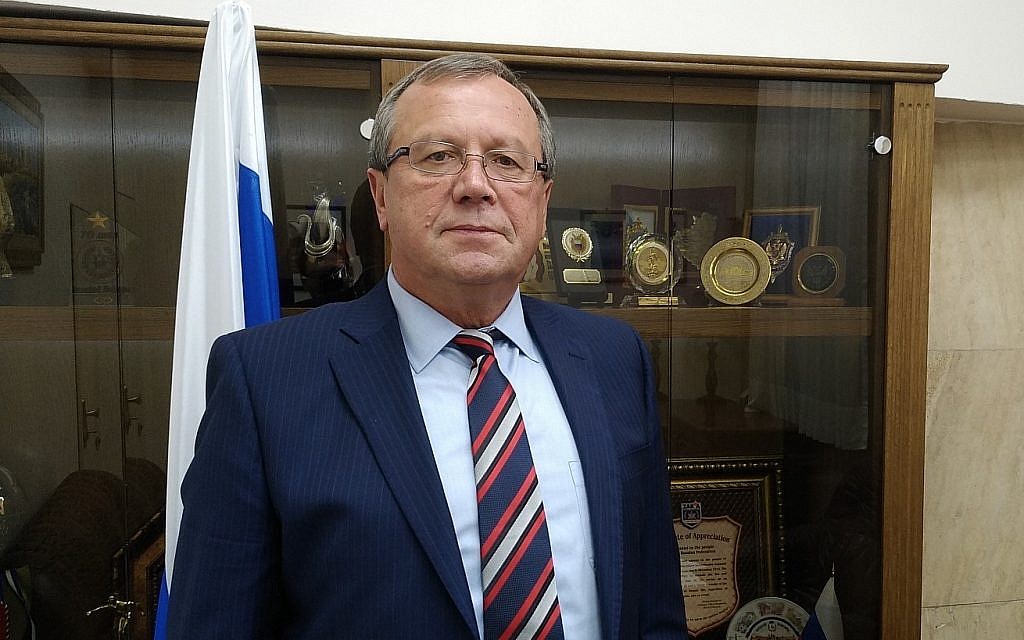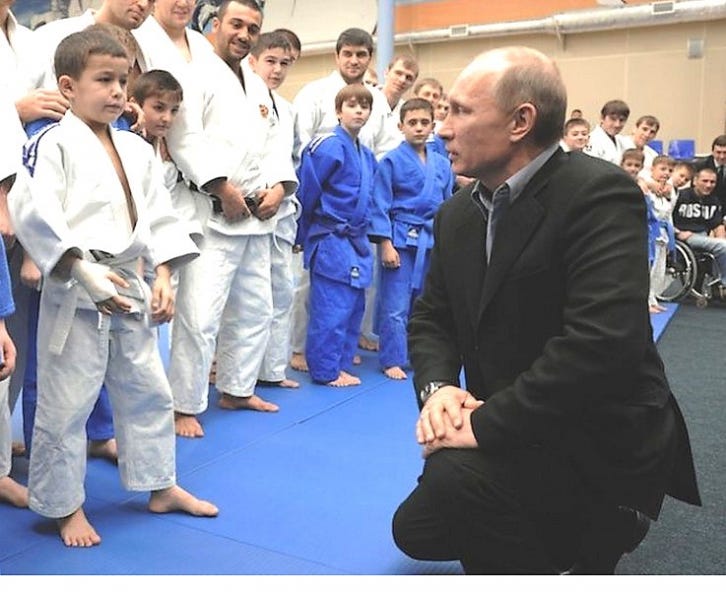angelburst29 said:I first read the article at this site:
Putin slams Erdogan on his policies in Syria
http://theiranproject.com/blog/2015/08/05/putin-slams-erdogan-on-his-policies-in-syria/
They are just repeating what Moscow Times has reported.
angelburst29 said:I first read the article at this site:
Putin slams Erdogan on his policies in Syria
http://theiranproject.com/blog/2015/08/05/putin-slams-erdogan-on-his-policies-in-syria/
Approaching Infinity said:angelburst29 said:Russian president to Turkish ambassador: "tell your dictator President he can go to hell along with his ISIS terrorists, I will make Syria a 'Big Stalingrad' for him!"
http://awdnews.com/top-news/russian-president-to-turkish-ambassador-tell-your-dictator-president-he-can-go-to-hell-along-with-his-isis-terrorists,-i-will-make-syria-a-big-stalingrad-for-him
The Moscow Times--
I'm very skeptical about this story. Not only is it out of character for Putin, Moscow Times isn't a very credible source, and Gordon Duff has been spreading the story for a couple days... Can anyone find a credible source that supports it?
Over the last couple of years we could hear a lot of important stuff (both internationally speaking as well as nationally?) that seems to have been discussed in Sochi rather than in Moscow or Saint Petersburg for that matter. I would like to know; Was it always that way?
In addition to his main residence, Putin has a number of residences throughout Russia. One of the most widely publicized is Bocharov Ruchey in Sochi.
Completed in 1955, it was commissioned by Kliment Voroshilov, a Soviet marshall and strongman under Joseph Stalin. This government dacha was frequented by Soviet leaders such as Khrushchev and Brezhnev. In modern Russia, Bocharov Ruchey became an official summer residence of Russia’s president, and it’s the only government dacha on the Black Sea.
I would guess that the plane didn't fly over Ukraine and instead made an even bigger detour through Russia instead.
Could it be that under the cover of preparing and building for the Winter Olympics in 2014, there was far more going on in terms of building and implementing certain safety measures or something? Maybe the Olympics were a good opportunity for Putin and government to build up something there that pertains to national and international security and other matters to discuss them outside the established centers such as Moscow?


That's what I was thinking. Sochi is more associated with Olympics current world population mind set, which is good. It avoids unnecessary attention for those triggered by the "Russia", "Moscow" to "dictator". Another thing is, LOT of money gets spent on Olympics , but if it doesn't have expected business attention/flow after the Olympics, it is just waste of money and maintenance of the infrastructure is not cheap. One example is how Brazil's Olympic infrastructure gone bad after the event. Having meetings there, keep the attention back to Sochi becomes a reason to invest in the region.There is this short video (in Russian), where someone asked Khazin about huge amount of money that was spent on the Winter Olympics. And Khazin invited this person to consider the possibility that large sums of money could be infused into such projects for the purpose of building and creating facilities in various locations, and in order to avoid undesirable attention from the "unfriendly" eyes.
How come that Putin (and government) seems to meet up and discuss important matters with high ranking foreign leaders in Sochi, of all places? Is it just me who has noticed that a lot of important matters seem to be discussed in Sochi now?
However, The Sun has quoted a 2015 research at the Department of Neurology, Radboud University Medical Centre, in The Netherlands, which highlights signs in Putin’s gait pointing to Parkinson’s.
The researchers pointed out that the 68-year-old Russian strongman walked with his left arm not moving – almost pinned to his side – while his right arm swings freely. However, this could be a “gunslingers walk”, as KGB agents were trained to keep their weapons tightly pinned to their left-hand side.


The Kremlin rejected a report in a British tabloid, The Sun, which suggested that Russian President Vladimir Putin may have Parkinson's disease and is poised to resign early next year.
The Sun cited professor Valery Solovei, a Russian political pundit, who suggested earlier this week on a Moscow radio station that 68-year-old Putin was under pressure from his entourage to step down due to fears for his health, Reuters said.
The tabloid reported that Putin's partner Alina Kabaeva, as well as his two daughters, are also calling on him to resign.
"There is a family. It has a great influence on him. He intends to make public his handover plans in January,” Solovei stated, predicting that Putin would appoint a new prime minister soon who would be groomed to become his possible successor.
According to the report, which was widely picked up by other British tabloid newspapers, observers watching a recent video clip of the president "noted his legs appeared to be in constant motion and he looked to be in pain while clutching the armrest of a chair.”
"His fingers are also seen to be twitching as he held a pen and gripped a cup believed to contain a cocktail of painkillers,” the report added.
Meanwhile, Kremlin spokesperson Dmitry Peskov rejected the claims and attested that Putin, who has been in power either as president or prime minister for two decades, is in "excellent health."
"It's absolute nonsense," Peskov said in comments shared by state news agency TASS. "Everything is fine with the president."
When asked if Putin was planning to step down in the near future as Solovei had suggested, Peskov said, "No."
The rumor emerged as lawmakers introduced draft legislation that would reinforce Putin's immunity from prosecution after his presidency to Russia's lower house of parliament on Thursday.
"The president of the Russian Federation retains immunity upon terminating his authority," the text says. "He cannot be held criminally or administratively liable and cannot be detained, arrested or subjected to a search or an interrogation."
The Sun's report quoted Peskov saying that the senator-for-life move is a "practice that is being applied in many countries of the world, and it is quite justified."
"This is not innovation from the point of view of international practice," Peskov claimed.
The report also said a team of researchers at the Department of Neurology at Radboud University Medical Center in Nijmegen, the Netherlands identified signs in Putin's movements that could point to Parkinson's disease in 2015.


Moscow ‘confused’ by Israeli anger at envoy’s remarks to ‘Post’
“All statements by the Russian ambassador quoted in the publication are in line with Russia’s well-known position on the Middle East.”
Israel was too sensitive about Russian Ambassador to Israel Anatoly Viktorov’s insinuation that Israel was the destabilizing factor in the Middle East, Russian Foreign Ministry spokeswoman Maria Zakharova said Friday.
“We are confused by the overly sensitive reaction to the issues touched upon in the interview of our ambassador to Israel,” she said more than two weeks after Israel’s Foreign Ministry reprimanded Viktorov for his remarks in an interview with The Jerusalem Post.
“The position presented in it has been repeatedly communicated to Israeli colleagues on various levels,” Zakharova said, according to the Russian news agency TASS. “All statements by the Russian ambassador quoted in the publication are in line with Russia’s well-known position on the Middle East.”


